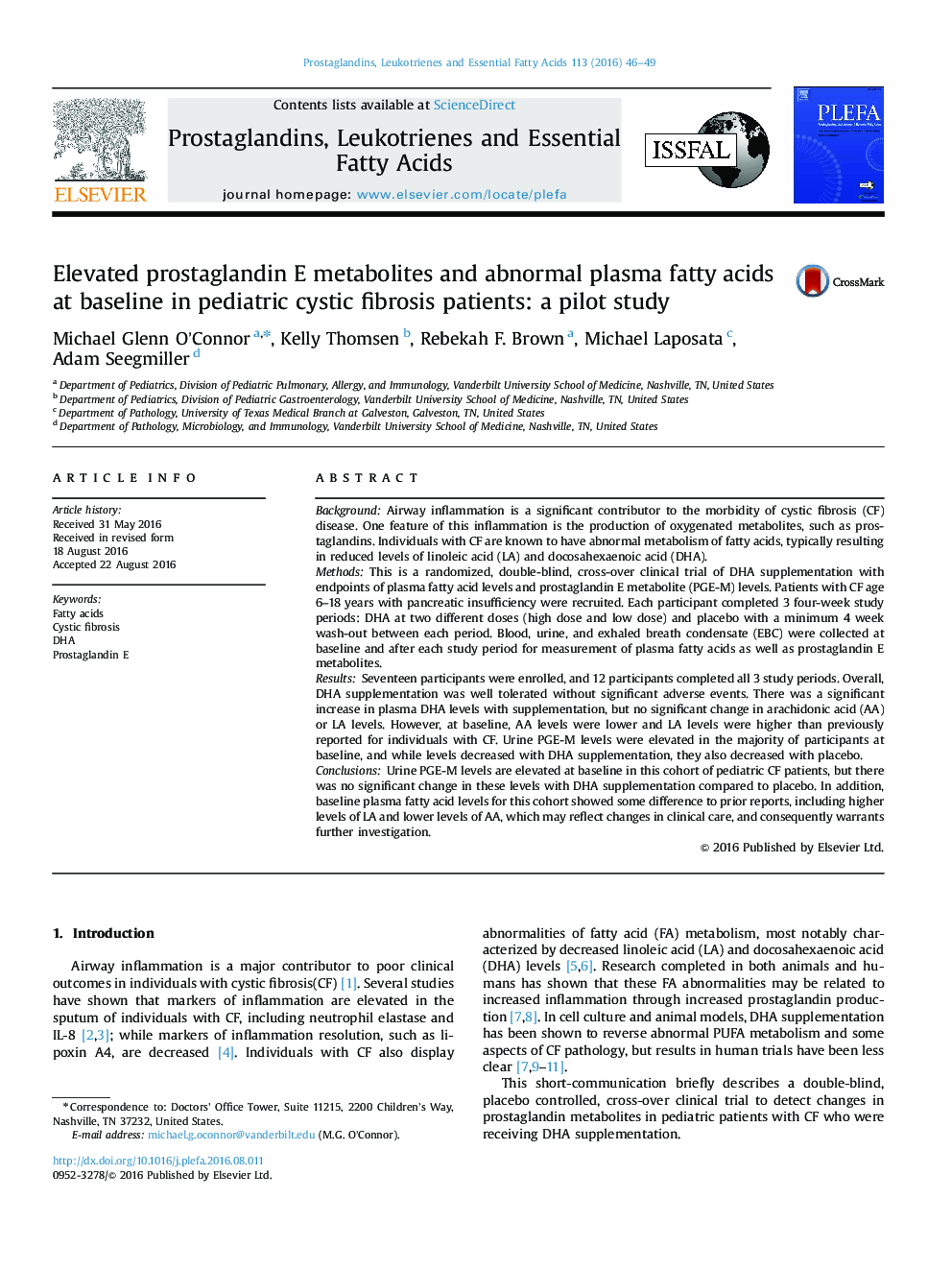| Article ID | Journal | Published Year | Pages | File Type |
|---|---|---|---|---|
| 2777419 | Prostaglandins, Leukotrienes and Essential Fatty Acids (PLEFA) | 2016 | 4 Pages |
•This is a randomized, cross-over design, pilot study investigating plasma fatty acids and prostaglandin-E metabolites (PGE-M) in pediatric patients with cystic fibrosis (CF) receiving oral docosahexaenoic acid (DHA) supplementation.•Despite a good clinical baseline, we observed elevation of urine PGE-M at baseline. Plasma DHA levels increased with DHA supplementation, but there were not clinically meaningful changes in other fatty acids.•In comparison to previous reports, at baseline we observed higher linoleic acid levels, lower arachidonic acids levels, and a normal triene/tetraene (T/T) ratio. These results suggest that previous observations may no longer be true in a new generation of pediatric CF patients, though further research is needed.
BackgroundAirway inflammation is a significant contributor to the morbidity of cystic fibrosis (CF) disease. One feature of this inflammation is the production of oxygenated metabolites, such as prostaglandins. Individuals with CF are known to have abnormal metabolism of fatty acids, typically resulting in reduced levels of linoleic acid (LA) and docosahexaenoic acid (DHA).MethodsThis is a randomized, double-blind, cross-over clinical trial of DHA supplementation with endpoints of plasma fatty acid levels and prostaglandin E metabolite (PGE-M) levels. Patients with CF age 6–18 years with pancreatic insufficiency were recruited. Each participant completed 3 four-week study periods: DHA at two different doses (high dose and low dose) and placebo with a minimum 4 week wash-out between each period. Blood, urine, and exhaled breath condensate (EBC) were collected at baseline and after each study period for measurement of plasma fatty acids as well as prostaglandin E metabolites.ResultsSeventeen participants were enrolled, and 12 participants completed all 3 study periods. Overall, DHA supplementation was well tolerated without significant adverse events. There was a significant increase in plasma DHA levels with supplementation, but no significant change in arachidonic acid (AA) or LA levels. However, at baseline, AA levels were lower and LA levels were higher than previously reported for individuals with CF. Urine PGE-M levels were elevated in the majority of participants at baseline, and while levels decreased with DHA supplementation, they also decreased with placebo.ConclusionsUrine PGE-M levels are elevated at baseline in this cohort of pediatric CF patients, but there was no significant change in these levels with DHA supplementation compared to placebo. In addition, baseline plasma fatty acid levels for this cohort showed some difference to prior reports, including higher levels of LA and lower levels of AA, which may reflect changes in clinical care, and consequently warrants further investigation.
